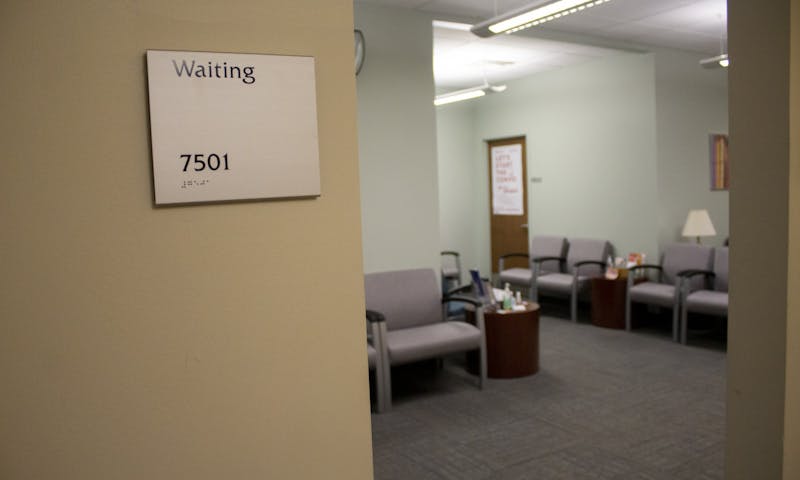
UHS works alongside the McBurney Center to make accommodations at campus events in order to ensure all students can access UW’s services.
Image By: Kalli Anderson
UHS works alongside the McBurney Center to make accommodations at campus events in order to ensure all students can access UW’s services.
Image By: Kalli AndersonAt the two University Health Services locations in Madison, one will find a waiting area similar to a general physician’s office. For years UHS has assisted students with medical care ranging from flu shots to mental health therapy to hosting campus blood donation events throughout the semester.
For able-bodied students, standing in a roughly ten minute line for a flu shot may not seem like a difficult task, but for people with disabilities like arthritis, cerebral palsy, etc., standing in line for a long period of time can be nearly impossible.
One way students with a physical disability can avoid UHS waiting lines is to make an appointment, but why should students with disabilities be excluded from receiving medical care without prior scheduling?
University Health Services regularly collaborates with the McBurney Center to ensure that students with disabilities have access to all the same medical care, programs and services as their peers.
The McBurney Center is another campus service that provides students with disabilities accommodations and access to UW-Madison’s various programs and resources. With 2,200 enrolled students last school year, it is the main service that students with disabilities contact.
“I have found that campus regularly contacts the McBurney Center to consult on accommodations and to request training because there is a strong, shared university commitment towards ensuring access for all students,” said McBurney Center’s Associate Director Ruben Mota.
Most recently, UHS requested a workshop that focused on models of disability, inclusive language and information on physical space design to guarantee their programming is accessible to students with disabilities.
“It is clear UHS takes accessibility seriously and does its best to meet the needs of not only students with disabilities but students from other identity groups as well,” Mota added.
Accommodations made by UHS and the McBurney Center extend to every UW-Madison event and, in general, campus events are held in spaces with wheelchair ramps, door openers and elevators to allow access to all students.
However, students must request accommodations in advance if steps beyond this are needed. Students with a disability are encouraged to request a chair to sit in while waiting for medical assistance such as a flu shot, blood donation and other general services.
For events that are offered only a portion of the year, this may not be a major inconvenience — but requesting an accommodation for every athletic, club, and campus-wide event could start to cause frustration.
When working with an individual with a disability, McBurney’s approach is that each person’s experience is unique and this is a sentiment they encourage the rest of campus to embrace.
“While individuals may have the same physical or mental health condition, they are impacted and experience their condition in different ways, so it can be difficult to generalize to an entire group,” Mota said.